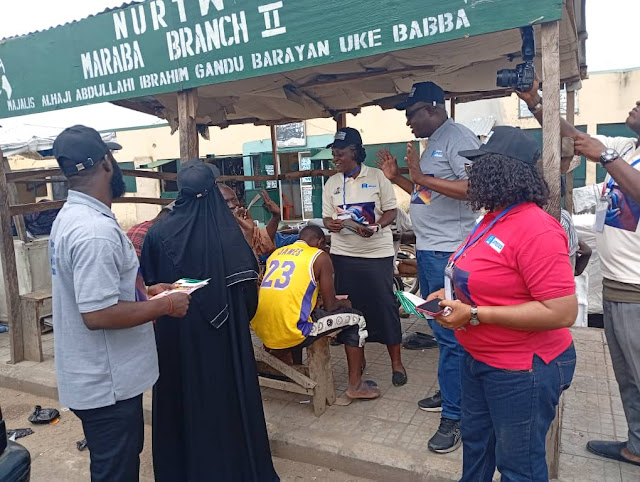The Nigerian National Commission for UNESCO (NATCOM-UNESCO), under the Federal Ministry of Education, has taken its peace advocacy to the grassroots with a sensitisation campaign held Thursday at the Sani Abacha Bus Terminal in Mararaba, Nasarawa State.
The initiative, part of a broader effort to promote peaceful coexistence and national unity, marked the conclusion of a two-day national conference on Peace Education and Cultural Reorientation as a Panacea to Curbing Violence in Nigeria.
Speaking at the event, Secretary-General of NATCOM-UNESCO, Dr. Idowu Olagunju, explained that the terminal was strategically chosen due to its diverse daily population representing Nigeria’s broad ethnic, religious, and cultural spectrum.
“We came here under the auspices of UNESCO to sue for peace,” Olagunju stated. “What we are preaching is simple—no more war in Nigeria. Every conflict ends in dialogue eventually, so why not start there?”
Engaging with transport workers, traders, and commuters, Olagunju encouraged peaceful dialogue and unity, urging citizens to reject hate speech, tribalism, and division. He emphasised that peacebuilding must begin at the grassroots level—within homes, families, and communities.
“Start with peace in your home—with your wife, your children. Tolerance is key. Another religion or tribe doesn’t make anyone your enemy,” he said.
He also called on religious leaders, the National Orientation Agency (NOA), and the Ministry of Information to intensify campaigns that promote social cohesion and unity.
Mr. Raphael Amos, Manager of the Sani Abacha Bus Terminal, praised the outreach, describing the location as a strategic hub for peace advocacy due to its high foot traffic from across Nigeria.
“This place gathers all kinds of people. When peace is absent, businesses suffer. Without peace, there’s no progress,” Amos noted.
Mr. Mohammed Lanzai, a representative of the Nasarawa State chapter of the National Union of Road Transport Workers (NURTW) and Coordinator of Kano Line within the terminal, also highlighted the importance of unity and patriotism.
“The conflict is not about Nigeria, it is about Nigerians,” Lanzai said. “Nigeria is our only country. We cannot run to Ghana or Cameroon. We must avoid hate speech, tribalism, and work together to reinforce peace in our communities.”
The News Agency of Nigeria (NAN) reports that the campaign is part of UNESCO’s ongoing national initiatives aimed at promoting tolerance and reducing communal and sectarian tensions, reinforcing the role of ordinary citizens in building a peaceful and inclusive Nigeria.
See more photos
ADEOLA KUNLE













